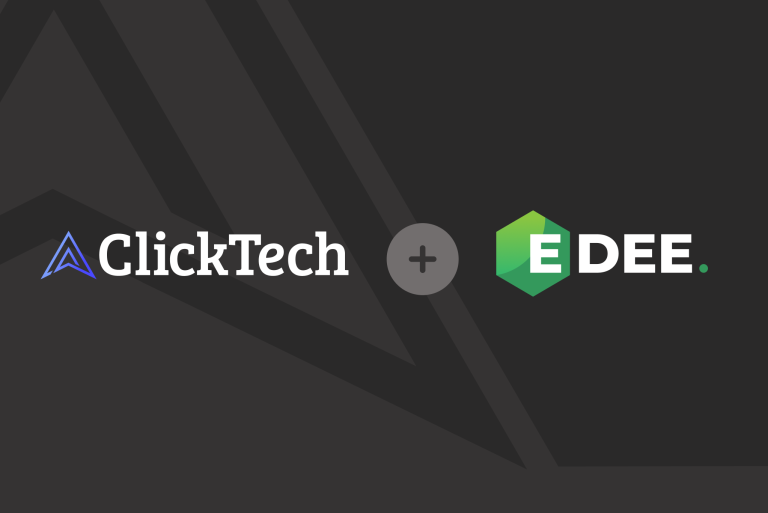Before Google Maps and SatNavs, we needed roadmaps to tell us where we needed to go. In PPC (pay-per-click), we have a variety of different management tools to help us achieve our goals but in order to reach them, you have to know what they are and how you’ll get there. And that’s where a PPC roadmap can come in handy.
Download: Free PPC roadmap template
What is a PPC roadmap?
A PPC roadmap (or PPC plan) is an outline of your campaign goals and how you aim to achieve them. It often comes in the form of a document and can detail some or all of the following:
- Your goals
- Your target audience
- Location targeting
- Target keywords
- Negative keywords
- Budget
- Ad creatives
- Remarketing
- Evaluation
It’s useful to think of a PPC plan as a communication document that anyone in the business can understand. You set out the elements of your plan in detail and then evaluate at the end.
Why do you need a plan?
PPC campaigns cost money to run and it’s strongly recommended you don’t run one without an idea of what you want to achieve. If you’re testing Google Ads as a new lead channel alongside your SEO strategy, you can be more relaxed, but bigger campaigns need more focused plans.
Before you even get started with a roadmap, jot down all the questions that will help form the basis of your plan. Here are a few examples:
- Which metrics are most valuable?
- What do I want to achieve?
- How long will it take?
- How much budget will I have?
- What do I predict will happen?
- What do I do if I don’t get conversions?
By asking these questions, you might come up with answers and they can go into your plan. You can also test out your theories and evaluate everything at the end.
Building your PPC roadmap

During the initial stages of building an effective PPC campaign, you will need to carry out plenty of research. Thorough customer research is vital to determine what your target audience wants. You’ll need to find out which products and services they are searching for, as well as any related queries you can answer better than your competitors. Your customer research is first on your to-do list, followed by your keyword research.
To build a strong PPC roadmap, you need to go through the process of setting yourself goals. These goals are specific to your business but there are lots to choose from. Let’s take a look at 4 potential goals you might want as part of your plan.
1. Improve leads, sales, or conversions
Improving lead generation and sales is a common PPC goal. While increasing traffic to your site is important, it becomes redundant if your visitors exit your site before they go through the later stages of the sales funnel. Lead generation is an ongoing goal for any business, making it a regular part of a typical PPC strategy.
How can your roadmap help you with this goal?
Quantifying your lead/sales/conversion goal gives you a tangible target. You can also link it to related metrics like cost-per-click, cost-per-lead, and cost-per-conversion.
Note: a conversion is defined as a valuable action on your website; this could be completing a form, subscribing to a newsletter, or making a purchase. How you define the specific nature of your conversions depends on your goals.
As part of this task, practice conversion tracking with tools like Google Analytics and use the data that you find to make changes to your campaigns. For instance, your data will offer insights about which keywords and ads are providing more conversions. With this information, you’ll know where to assign more of your budget.
Part of your PPC Roadmap should be tracking user behaviour. By doing so, you can see which elements of your site are achieving conversions, and which are not.
2. Increase traffic to your site
Who doesn’t want more traffic to their site? Without traffic, you can’t achieve the above goal, and with competition growing everyday, it’s more important than ever to get new and returning visitors to your site.
How can your roadmap help with this goal?
When adding this goal to your plan, focus on metrics like:
- CTR (click-through rate)
- The ratio of new vs. returning visitors
- Session duration
- Pages per session
Doing so will help you to analyse how much traffic you’re getting in, but more importantly, the quality of that traffic. CTR is particularly important as it affects your Google Ads Quality Score and your Ad Rank. The better they are, the higher your position in the SERPs.
Read: What Is A Good CTR For Google Ads?
Improving traffic numbers and qualities can also help your SEO strategy. PPC traffic often contains a very specific group of people who have an intent to buy but they might also need answers to questions about your product, service, or industry. Feel free to add any of that information into your plan.
3. Boost brand awareness
A brand awareness goal is less about converting visitors now and more focused on spreading general awareness. If they can represent your brand with the type of product or service you provide, it can help sway their decision when it comes to buying.
You should aim to get your target audience interested in reading your content and engaging with you on social media as well. When it comes to brand awareness, you can use PPC marketing to your advantage.
How can your Roadmap help you with this goal?
As tracking brand awareness can be a wide gamut, you should consider areas like remarketing and metrics like pages per session and session duration. What is their site journey like and how long as they staying? When they leave, how can you retarget them again to make sure they come back? These are the kinds of questions you should answer in your roadmap.
Remarketing is a great way to boost brand awareness, and it’s also a powerful conversion tool.
4. Micro-moments
The customer journey should be an integral part of your strategy and understanding micro-moments can help you guide that journey in an improved way.
The idea of micro-moments were created by Google and refer to intent-rich moments when a person turns to a device to act on something they need-to-know, go, do, or buy. As part of your marketing strategy, anticipate each micro-moment, and be visible and responsive to your customers during these moments.
How can your Roadmap help you with this goal?
Creating micro-moments can all start with an effective ad. Think about your creatives: the copy, headlines, descriptions, and images. They act in a similar way to shop windows. Department stores like Selfridges do a brilliant job of this, with beautifully dressed shop windows and enjoyable experiences when you walk in. You can emulate that with your ads and your landing pages.
The experiences you provide must be highly relevant to the moment in question. For example, if a customer is searching for knowledge, it’s no use pushing your product page as a search result. You must ensure that your PPC strategy is as much about providing useful content, as it is about selling products.
What complements a PPC plan?
For a strategy to work effectively, it needs the collaboration of multiple channels.
1. SEO
SEO and PPC follow different marketing concepts, which is why they complement each other so well. SEO data can inform your PPC goals and PPC data can do the same for SEO. If you’ve already got workable SEO campaigns running, then you’ll have data about high-performing keywords. You can use this data to fuel the success of your PPC ads. Data from your SEO campaigns regarding geographic location can also help with the location targeting aspect of your roadmap.
Here are some great SEO tools that you can use:
2. Competitor analysis
Analysing the strategies of your competitors helps you set benchmarks for your plan. Many businesses wonder if they should still bid on keywords that they rank for organically, especially if they rank first. Some companies choose to bid, and others remove the word from their campaigns altogether. It’s advisable to research what your competitors are doing with regard to these organic and paid keywords.
You’ll likely have spent a lot of time on your keyword research, yet we all miss important details sometimes. By looking at your competitor’s keywords, you might find a word or two that previously slipped your attention.
3. Split testing
How do you know if your success was sustainable or just beginner’s luck? With split testing.
Running split tests on ads is can help you find improvements you wouldn’t have thought about – things like reordering your descriptions or changing the text in your display URL. Another reason to conduct a split test is to remove bias from your campaigns.
You may feel that certain ads perform well because they’re “good” when it could be related to seasonality or current events. Assumptions cost money in PPC and you need the evidence to back up your decisions.
How can Adzooma help you achieve your goals?
You’ve probably noticed by now that managing your online advertising can be time-consuming. Many tasks are repetitive, and micro-managing the finest details gets old fast. That’s why Adzooma is at hand in two ways.
- A free PPC roadmap template
We’ve created a free downloadable PDF template for you to print out and fill in (or edit if you have the necessary software). Remember that list at the start of the article? Well, we’ve added those criteria into the template for you to plan out your goals.
Download your free PPC roadmap template here [PDF]
- The Adzooma platform
To make paid advertising more effective, and faster, Adzooma has got you covered. Using our combination of high-performing automation tools, you can let the platform do all the hard work while you focus on the exciting stuff.
Our award-winning platform helps businesses worldwide to adjust targeting and bidding strategies to improve their ROI. Whether you’re running Google Ads, Microsoft Ads, or Facebook Ads accounts, Adzooma can connect all of them. Having all your accounts in one place under one screen can only increase your productivity.
To enhance the performance of your ad campaigns, join Adzooma for free today.




